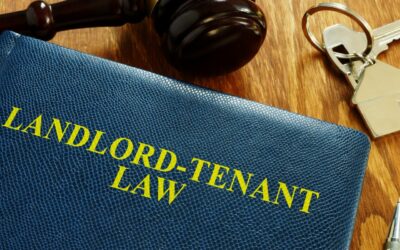California fair housing laws prohibit discrimination in housing based on race, color, ancestry, national origin, religion, age, sexual orientation, gender, gender identity, marital status, family status, citizenship, immigration status, primary language, military or veteran status, medical conditions, disabilities either mental or physical, genetic information, criminal history, any arbitrary characteristics and source of income, for example of Section 8 vouchers. This applies to rental property owners and operators, as well as landlords and property managers.
These laws apply to all aspects of the rental process, including advertising, showing units, processing applications, and setting rental terms and conditions. Landlords and property managers may not refuse to rent to someone or offer different terms or conditions to tenants based on these protected classes.
Additionally, California laws require landlords to make reasonable accommodations for tenants with disabilities and to allow tenants to make reasonable modifications to their units to accommodate their disabilities.
Please know that this is not legal advice, this is only to make you aware of the bill and something you may want to contact a lawyer for further information.
California Senate Bill 329 (SB 329) is a bill that was passed in 2020 and signed into law by Governor Gavin Newsom. This bill expands the state’s fair housing laws to prohibit discrimination based on a person’s source of income. Under SB 329, landlords are prohibited from:
For example, if rental criteria say that a resident must earn three times the amount of rent every month, an owner has to consider three times the amount of what the Section 8 resident would be paying. So if the resident is responsible for only $300 of a rental payment and the voucher takes care of the rest, a resident income that meets or exceeds a rent equivalent to $900 is sufficient. That same tenant’s security deposit would also be based on the $300 rent.
HUD inspections are required before the tenant signs the lease and once a year. See checklist.
The inspection is similar to a normal move-in / move-out check a property owner should be conducting already. The inspector is making sure that the home is safe and ready for habitability. Yes, the home may need a few repairs that normally should have been completed anyway. Things the inspector is looking for are fixtures, outlets, and appliances in working order, peeling paint, exposed wires, the bathroom is functional, windows are not broken, trip hazards, lead-based paint, and the tenant’s ability to secure the home.
Near the end of the checklist, there is a section for the inspector to note improvements that may justify an allowance for a higher rent amount. Please remember, the end result of the inspection is based on the inspector’s observations, which may vary depending on the inspector.
(i) by the Secretary for purposes of this subsection; or
(ii) by local housing codes or by codes adopted by public housing agencies that—
(I) meet or exceed housing quality standards.
This is extremely vague. I interpret this to mean property owners’ property should meet local code enforcement laws, and health and safety laws. If a property owner keeps the residence in good condition, they should not be worried about the inspections. But then again, I have no say in this.
Property owners need to make sure they follow all the legal requirements when considering Section 8 applicants and avoid any possible charges of discrimination.
If you would like to read the bill in its entirety, please visit these sites: https://leginfo.legislature.ca.gov/faces/billNavClient.xhtml?bill_id=201920200SB329 https://www.govinfo.gov/content/pkg/USCODE-2011-title42/pdf/USCODE-2011-title42-chap8-subchapI-sec1437f.pdf



